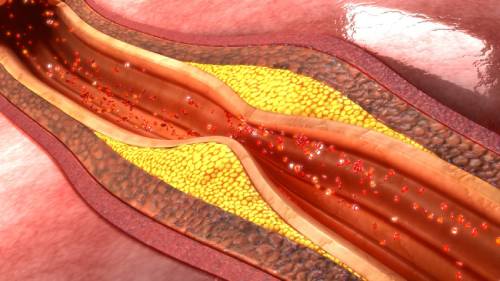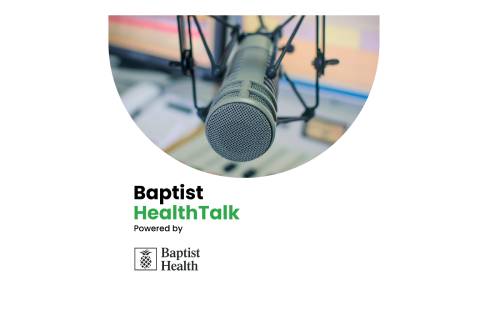
Life
Children’s Health: Home Pools and Swimming Safety
3 min. read
With the end of the school year and summer around the corner, safety needs to be top-of-mind for families with home pools, or pools at condominium or apartment complexes.
Of the more than 3,500 annual accidental drownings (non-boating related) in the U.S., about one in five are children 14 and younger, according to the U.S. Centers for Disease Control and Prevention (CDC). “For every child who dies from drowning, another five receive emergency department care for nonfatal submersion injuries,” the CDC states.
“Having pools at home, kids are going to wander and you really want to be very, very careful with pool safety,” says Fernando Mendoza, M.D., chief of pediatrics and medical director of pediatric emergency, Baptist Health Baptist Hospital. “That includes having alarms on those sliding doors, or French doors in the backyard, to make sure you know when a child goes out. Keeping that pool fence up — even though toddlers can get pretty creative — will help deter, not always prevent, but deter.”
This year’s Water Safety Splash Day event, sponsored by West Kendall Baptist Hospital and Baptist Children’s Hospital, is scheduled for May 21. During the event, the group Little Swimmers usually provides basic swim lessons, evaluations, and vital CPR demonstrations. The idea for Water Safety Splash Day came from Zulma Berrios, M.D., Chief Medical Officer of West Kendall Baptist Hospital, after a tragic loss in her family involving a young drowning victim.
In South Florida, near-drowning or drowning – so called submersion injuries – can happen year-round, but incidents increase in summer, said Dr. Mendoza.
“Both young children and teens are vulnerable to water accidents,” Dr. Mendoza said. “Even teens who are experienced swimmers are at risk because they underestimate the dangers associated with water activities. Jumping from a high point into water, rough play in the water or pounding surf can cause injuries and drowning among these youths.”
Dr. Mendoza recommends that parents supervise young children around water and install physical barriers, such as door locks and pool fences, to prevent access to swimming pools when an adult is not around. For older children and teens, he admits it’s more difficult to prevent accidents. But, he says, talking to them about the risks of dangerous behaviors can be helpful. Nonetheless, even older kids need supervision by adults.
“If there is no adult supervision, than the risk of injury greatly increases among all kids,” Dr. Mendoza said. “They become more daring and do riskier things than they would if adults were present. So, they’re should always be adults present.”
Home Pool Safety Rules
The following are home pool safety guidelines from Little Swimmers.
- Install a barrier fence AT LEAST 4 feet high, 5 feet is recommended.
- Install door alarms leading to the pool or lake or canal.
- Install an underwater pool alarm.
- Install an anti-entrapment safety drain cover.
- Learn CPR.
- Keep chemicals in a remote area away from children’s reach.
- Invest in swimming lessons.
- Keep surface clear of flotation devices/toys making it easy to see clearly to bottom.
- Avoid pet doors on screens, fences and gates, small children can crawl through them.
- Avoid running, pushing and horseplay around the pool.
- Dry off well before entering the home to avoid injury from slipping or someone else hurting themselves due to a slip and fall.
- DO NOT dive in shallow parts.
- DO NOT use any glass containers in, near or around the pool.
- Take extra caution when using a heated spa. Being in hot water for too long can cause nausea, dizziness, vomiting, overheating and burning of the skin. Hot water can also cause sleepiness/tiredness/fatigue, which in turn can lead to drowning.
- At the end of the day, always seep the area to ensure the pool barriers are secured properly.
- Remember, children are curious, if you are looking for a missing child, look in the water FIRST!
Always be Prepared by:
• Keeping rescue equipment handy. i.e.: life ring, pole, flotation device.
• Keeping a phone handy poolside with home address listed in case someone other than yourself needs to reference.
• Keeping emergency phone numbers handy such as 911, poison control 800-222-1222 and local police. i.e.: Hammocks police Station 305-383-6800, Miami Dade Police Station: 305-279-6929.
Baptist Health is open to provide you care when and where you need it. Click here to GET CARE NOW.
Healthcare that Cares
Related Stories
View All Articles
Roundup: COVID can Inflame Arteries, Raise Heart and Stroke Risks; Sitting Too Much Everyday Linked to Dementia Risk; and More News
October 6, 2023
5 min. read

Roundup: Breakthrough Study Identifies ‘Long COVID’ in Blood Samples; Obesity Rates at 35% or Higher in 22 States; and More News
September 29, 2023
5 min. read
